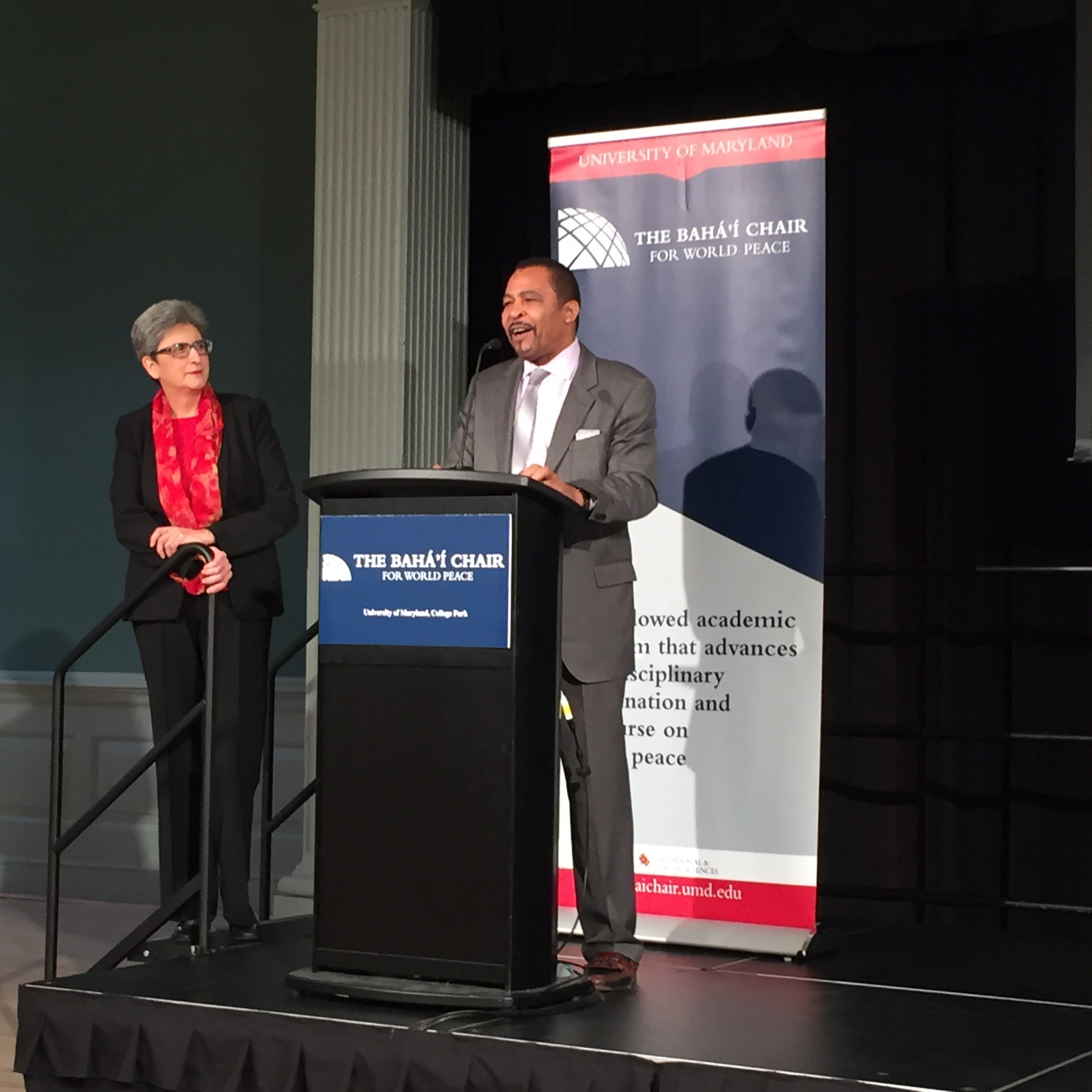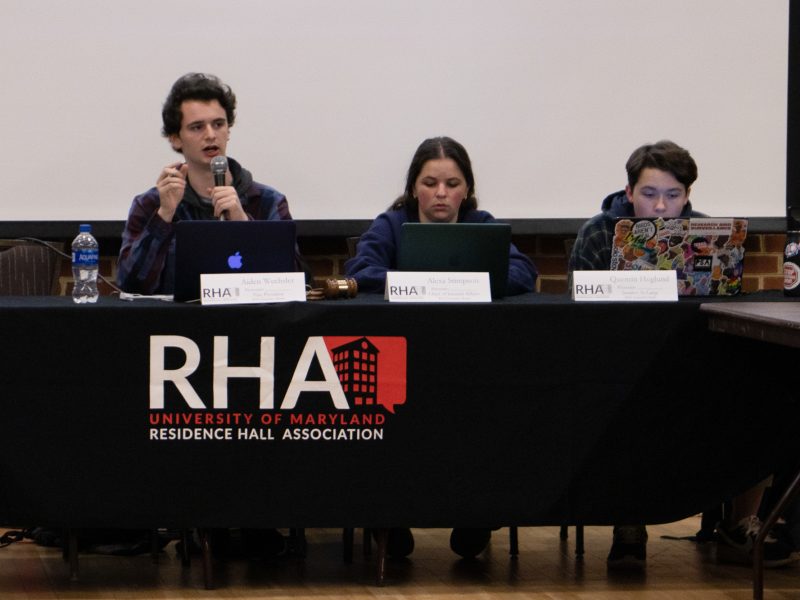By Joel Eliach
For The Diamondback
On the second day of Black History Month, about 50 students, visitors and staff members gathered in Stamp Student Union’s Colony Ballroom for a visiting lecture on W.E.B. Du Bois and his unrecognized contributions to American sociology.
Aldon Morris, a Northwestern University sociology and African-American studies professor and the author of The Scholar Denied: W.E.B. Du Bois and the Birth of Modern Sociology, visited the University of Maryland on Tuesday to speak about Du Bois’ influence as an overlooked founder of sociology.
“The lesson that I learned from Du Bois is that we must complain, we must agitate for change, but you must use your oppression as a foundation to bring about change,” he said.
The crowd was greeted by Hoda Mahmoudi, research professor and chair at the university’s Bahá’í Chair for World Peace. The program organized the event as part of a series on structural racism and the roots of prejudice.
“Today’s lecture is going to capture this particular scholar, but it touches upon the problem of racism, the problem of marginalizing, in this case a scholar, but in other cases, a population of people,” Mahmoudi said.
Morris also spoke of Du Bois’ role as a mentor to several groundbreaking figures in the sociology field, including Richard R. Wright Jr. and George Edmund Haynes.
He said he does not understand why many sociologists don’t use their positions to try to make change and push for justice, as Du Bois did.
“Du Bois always used his scholarly platform to insist on the integrity of black humanity and to demand racial justice,” he said.
Daniel Greene, an American studies doctoral student, said he was impressed with the lecture.
“It was really, really remarkable. [It] just turns everything you thought you knew about a particular way of looking at the world on its head,” he said.
Ashli Taylor, a sophomore government and politics and history major and research assistant at the Bahá’í Chair, said she came out of the event with much more knowledge than before.
“I don’t know anything about sociology, or even anything about W.E.B. Du Bois, but I felt as though I really learned a lot,” she said. “It was very inspiring.”
Taylor’s sentiments echoed what organizers such as sociology professor Rashawn Ray hoped would happen — that the event would foster knowledge of topics many have never thought about.
“They’re going to learn information about the last 100 years in the academy that they’ve never heard of and that they’ve never thought of before,” Ray said. “When that happens, people leave changed, and they question things.”



